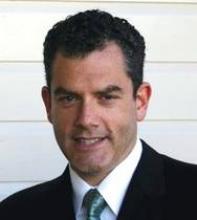A major barrier to any oral contraceptive becoming OTC is the need for a manufacturer to apply to the FDA. "No manufacturer has said it is willing to apply," Dr. Grossman said.
In addition to trying to persuade a manufacturer to cooperate, "the next step is to show the FDA that women can self-identify their contraindications," Dr. Grossman said. A study he published in 2008 showed that 7% of women incorrectly thought that they were candidates for oral contraceptive use when in fact they had a contraindication (Obstet. Gynecol. 2008;112:572-8). This rate was almost identical to the 6% rate of contraindications found in women who had received an oral contraceptive prescription in the 2007 NHANES analysis (Contraception 2007;75:355-60).The main contraindication women have trouble self-identifying is hypertension, especially when undiagnosed, he said. In the St. Louis study, hypertension caused 71% of the true contraindications.
Ob.gyn. researchers at Washington University in St. Louis enrolled roughly 10,000 area women in the Contraceptive CHOICE program and provided them with free contraception of their choice to promote reversible, long-term methods of contraception. The current study focused on 1,010 participants in the program who opted to receive a combined hormonal contraceptive. The researchers tallied the number of women with a true medical contraindication for a combined hormonal contraceptive based on health records, reported Ms. Xu, a researcher in the department of ob.gyn. at Washington University in St. Louis, and her associates. Contraindications were a documented history of breast cancer, hypertension, myocardial infarction, transient ischemic attack, cerebral vascular accident, migraines with aura, any migraine at age 35 years or older, venous thromboembolism, liver disease, or smoking at age 35 or older.
Ms. Xu and her associates had no disclosures. Dr. Burke said that she has received a training grant from Merck, which markets Nexplanon. Dr. Grossman said that he has no disclosures.


